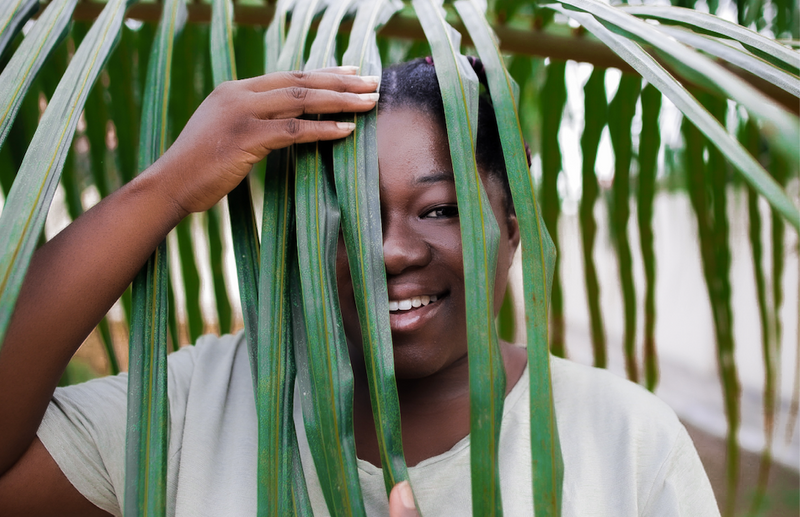
February is Black History Month! To celebrate, we’d like to speak to many of the life and society altering contributions Black leaders have made in the past and the present!
Our school systems are guilty of leaning towards a very white and Euro-centric view of history. It’s absurd to think that you can look at what is going on today without seeing the incredible progress in science, technology, and climate change activism done by BIPOC.
We’ve been taking the time to educate ourselves about intersectional theory and how it relates to the environmental challenges that we, as a brand and as individuals, are fighting against.
Here are some stats that we've gathered from @impact written by @ashleybarrii.
____________________________________________________
"Black communities are 70% more likely to live in counties that are in violation of federal air pollution standards.
Latinxs are 165% more likely to live in counties with unhealthy levels of particulate matter pollution.
86% of Alaska Native villages are susceptible to flooding and erosion."
____________________________________________________
Protecting the earth is multifaceted - we can't protect the environment without protecting its people first. People who are experience these issues first-hand must be included in the dialogue surrounding how to move forward. Check out @intersectionalenvironmentalist and @impact for more information and to see what this movement already has under its belt!
And without further ado, here are a few amazing individuals who have led and fed change in the past 100 years...
Charles Drew (past)

Charles Drew was an American surgeon and medical researcher in the 1900’s. He pioneered blood transfusion research and managed the two largest blood banks during the midst of WWII.
Marie M Daly (past)
Marie M Daly was an American biochemist and the first Black American woman in the US to receive a PhD in chemistry.
She became interested in the sciences after spending time in her grandfathers expansive library and was inspired by her father who had attempted a chemistry degree, although had to drop out due to a lack of funds.
After receiving her degrees and being awarded an American Cancer Society grant to support her research, Marie joined Rockefeller Institute; a 7 year long research project conducting studies in the cell nucleus and learning how proteins are structured in the body.
Years down the line, Marie initiated a Queens College scholarship fund to assist minority students majoring in chemistry or physics out of respect for her father’s struggles.
In 1975, Marie was invited as one of 30 minority women scientists to take part in a conference focused on the difficulties minority women face in STEM fields. After this, more recognition was delivered to minority women in the way of magazines, articles, and more research and consideration.
Marie led and funded ground breaking research, defining many of the terms and theories we know today to be true today. She is a true role model for her incredible contributions to science!
John Francis 'The Planetwalker' (past)
After witnessing the 1971 San Francisco oil spill, John Francis (nicknamed ‘The Planetwalker’) made the decision to stop riding in all motorized vehicles. This dedicated commitment lasted 22 years.
As John would walk on foot, he would get into many arguments with friends and strangers, defending his travel method. On his birthday in 1973, John made the choice to stop speaking for one day, as a gift to his community. He thought it so worthwhile, he continued, and continued, and continued, for 17 years, only communicating by writing and bodily gestures. All the while, he earned three degrees, including a Ph.D in Land Management.
He ended his vow of silence in 1990 on Earth Day. The very next day, he was hit by a car and managed to convince the paramedics to allow him to walk to the hospital.
John Francis walked across the entire width of the lower 48 states, walked to South America, and built a non-motorized boat to travel from Washington to Montana, all while striving to constantly be a better environmentalist. He studied and taught all across the US, one step at a time. In 1994, at the border of Venezuela and Brazil, John thought he could be a more effective environmentalist if he boarded motorized vehicles once more and ended his 22 years of walking by hopping on a bus.
In 1991, John Francis was named a United Nations Environmental Program Goodwill ambassador and since then has been employed by the United States Coast Guard to work on legislation towards managing oil spills.
“Having listened to thousands of people, I realized we had a narrow view of what the environment is. It’s more than saving trees; it’s about how we treat each other, and that includes gender and economic equality and civil rights."
George Washington Carver (past)
George Washington Carver was an American agricultural scientist specializing in crop rotation in the 1800’s. He made breakthroughs in resource conservation by discovering methods to preserve soil thereby making farms more productive and accessible.
George was sought out for his teachings on the “Possibilities of the Peanut”, which he later spoke to at the United Peanut Association Convention in 1920, presenting 145 peanut derived and related products. In 1921, he testified to Congress for a tariff to be passed on peanuts, as US peanut farmers were feeling the hit of lower priced peanuts imported from China.
It was unusual for a Black man to testify in 1921, and there are reports of Southern congressmen mocking him. However, in 1922, the tariff was passed and George became a household name and his discoveries were even more widely distributed. He was publicly admired by President Theodore Roosevelt and the general community, despite living in an era with high racial decriminalization. George wound up being featured in Time magazine.
Majora Carter (present)
Majora Carter redefined the field of environmental equality as an American urban revitalization strategist in the South Bronx. She is a deeply committed activist, taking part in many civil rights, social, and environmental justice protests and movements. She was nicknamed “The Green Power Broker” for her outstanding courage and bravery to speak up as a leader against these issues.
In the early 2000’s, Majora founded Sustainable South Bronx, a non-profit organization set on providing environmental justice solutions. While going for a dog walk, she came across an excess of trash and garbage right on the banks of the Bronx River. After seeing this, she advocated for the protection of Riverside park, which had become an illegal dumping ground. SSBx was built with deep roots in ecology consideration, sustainability, and acknowledgment of environmental intersectionality.
Leah Thomas (present)

Leah Thomas (@greengirlleah) is an environmentalist and eco-communicator.
Rue Mapp (present)
Rue Mapp (@ruemapp) is the founder of Outdoor Afro ; a national not-for-profit organization that supports communities in their efforts to protect vulnerable public land and help people connect black history to the natural world around them.
Outdoor Afro uses social media to join like-minded adventurous individuals and organize outdoor rec activities such as hiking, skiing, surfing, and camping! This organization is dedicated to sharing opportunities to build broader community connections and leadership in nature.
We hope you think these people are cool as we do. We have linked all of the accounts we can and encourage you to check them out and give them a follow on social media! :)







Thank you so much for the informations, really appreciate it!!